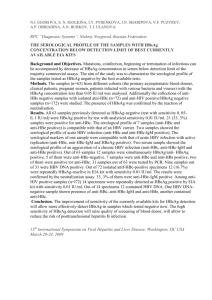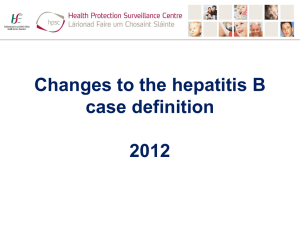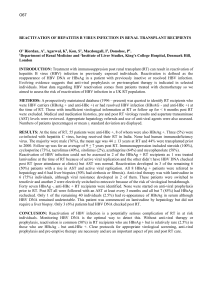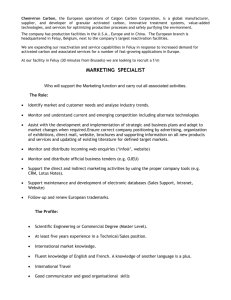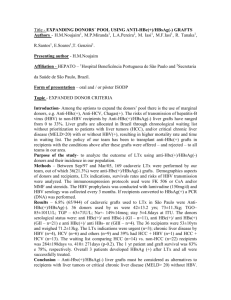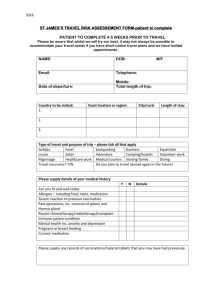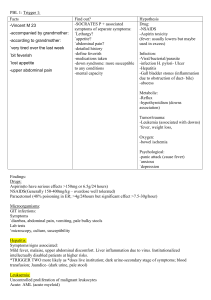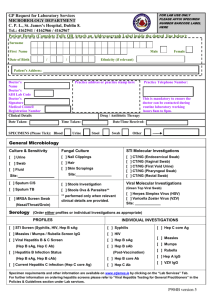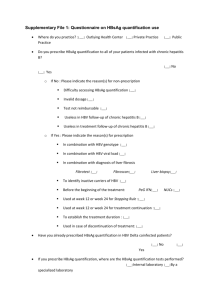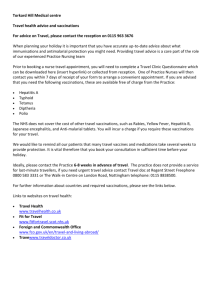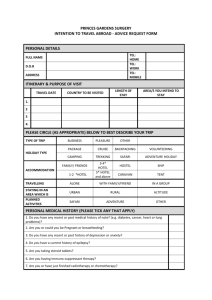A case of fatal acute liver failure due to Hepatitis B reactivation in a
advertisement
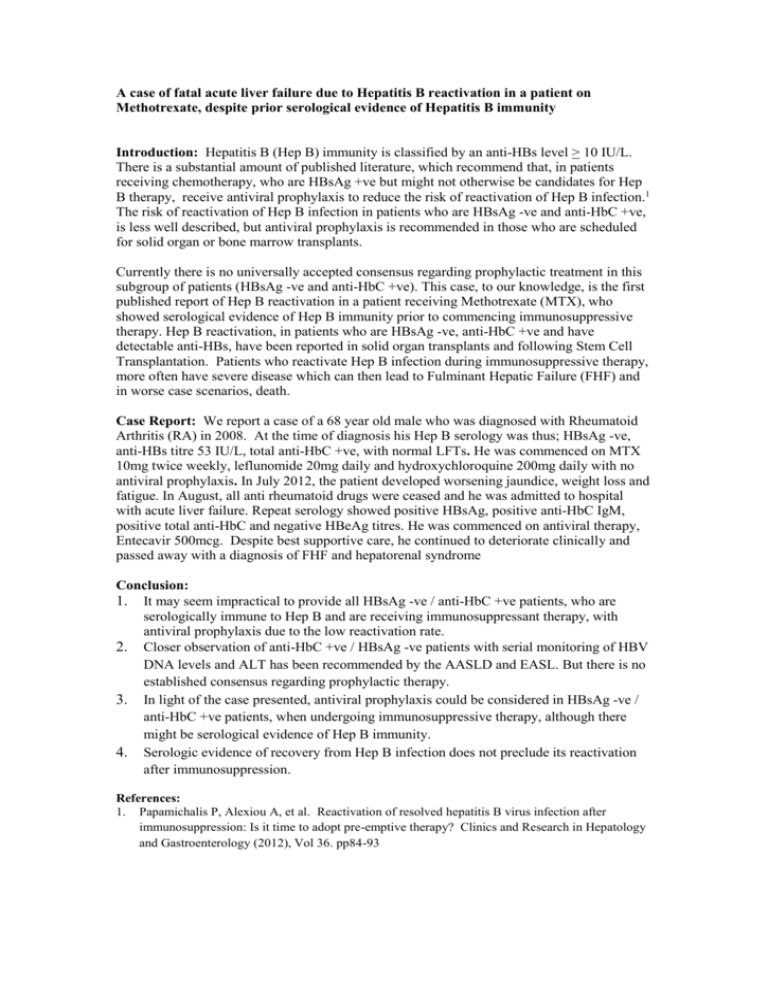
A case of fatal acute liver failure due to Hepatitis B reactivation in a patient on Methotrexate, despite prior serological evidence of Hepatitis B immunity Introduction: Hepatitis B (Hep B) immunity is classified by an anti-HBs level > 10 IU/L. There is a substantial amount of published literature, which recommend that, in patients receiving chemotherapy, who are HBsAg +ve but might not otherwise be candidates for Hep B therapy, receive antiviral prophylaxis to reduce the risk of reactivation of Hep B infection.1 The risk of reactivation of Hep B infection in patients who are HBsAg -ve and anti-HbC +ve, is less well described, but antiviral prophylaxis is recommended in those who are scheduled for solid organ or bone marrow transplants. Currently there is no universally accepted consensus regarding prophylactic treatment in this subgroup of patients (HBsAg -ve and anti-HbC +ve). This case, to our knowledge, is the first published report of Hep B reactivation in a patient receiving Methotrexate (MTX), who showed serological evidence of Hep B immunity prior to commencing immunosuppressive therapy. Hep B reactivation, in patients who are HBsAg -ve, anti-HbC +ve and have detectable anti-HBs, have been reported in solid organ transplants and following Stem Cell Transplantation. Patients who reactivate Hep B infection during immunosuppressive therapy, more often have severe disease which can then lead to Fulminant Hepatic Failure (FHF) and in worse case scenarios, death. Case Report: We report a case of a 68 year old male who was diagnosed with Rheumatoid Arthritis (RA) in 2008. At the time of diagnosis his Hep B serology was thus; HBsAg -ve, anti-HBs titre 53 IU/L, total anti-HbC +ve, with normal LFTs. He was commenced on MTX 10mg twice weekly, leflunomide 20mg daily and hydroxychloroquine 200mg daily with no antiviral prophylaxis. In July 2012, the patient developed worsening jaundice, weight loss and fatigue. In August, all anti rheumatoid drugs were ceased and he was admitted to hospital with acute liver failure. Repeat serology showed positive HBsAg, positive anti-HbC IgM, positive total anti-HbC and negative HBeAg titres. He was commenced on antiviral therapy, Entecavir 500mcg. Despite best supportive care, he continued to deteriorate clinically and passed away with a diagnosis of FHF and hepatorenal syndrome Conclusion: 1. It may seem impractical to provide all HBsAg -ve / anti-HbC +ve patients, who are serologically immune to Hep B and are receiving immunosuppressant therapy, with antiviral prophylaxis due to the low reactivation rate. 2. Closer observation of anti-HbC +ve / HBsAg -ve patients with serial monitoring of HBV DNA levels and ALT has been recommended by the AASLD and EASL. But there is no established consensus regarding prophylactic therapy. 3. In light of the case presented, antiviral prophylaxis could be considered in HBsAg -ve / anti-HbC +ve patients, when undergoing immunosuppressive therapy, although there might be serological evidence of Hep B immunity. 4. Serologic evidence of recovery from Hep B infection does not preclude its reactivation after immunosuppression. References: 1. Papamichalis P, Alexiou A, et al. Reactivation of resolved hepatitis B virus infection after immunosuppression: Is it time to adopt pre-emptive therapy? Clinics and Research in Hepatology and Gastroenterology (2012), Vol 36. pp84-93
